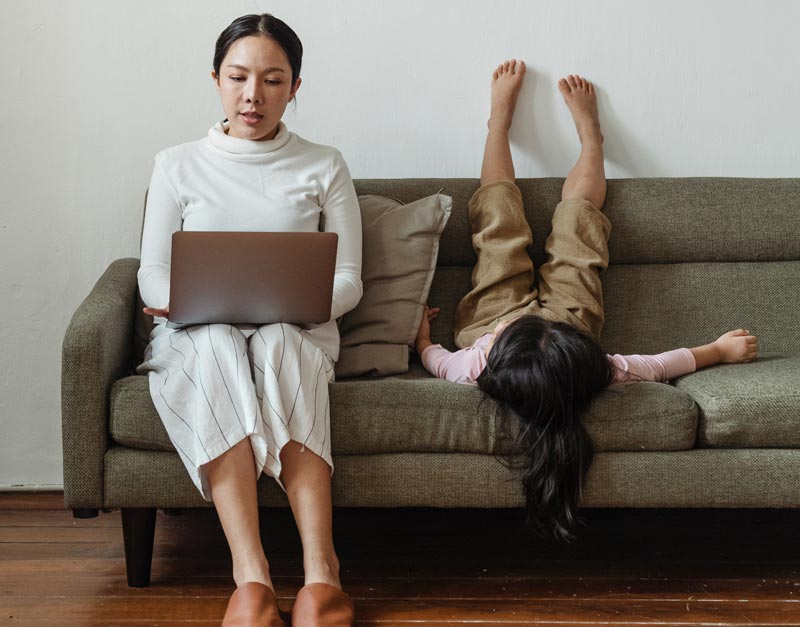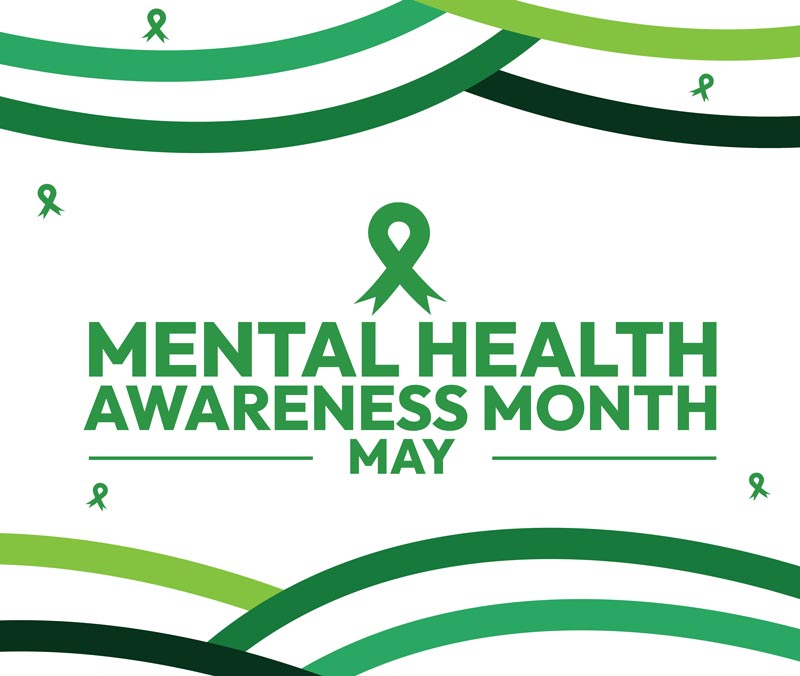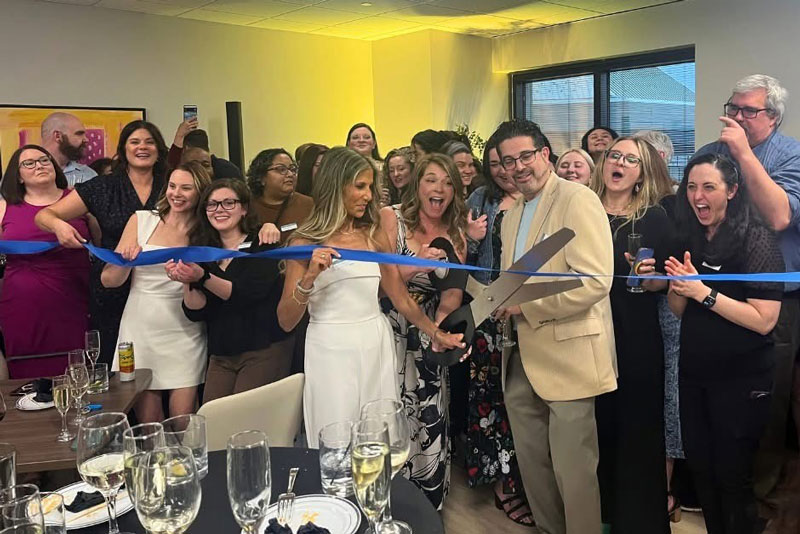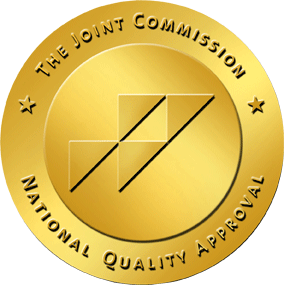By: Laura Lange LCSW
How can we put ourselves first when *everyone* is struggling?
We got the call tonight.
The call that no parent of young kids wants, but everyone seems to be getting.
Our decision to attend a small family party had exposed us all—myself, my spouse, and our two young children—to COVID.
As I laid down with my littlest to help them fall asleep, my mind pinballed through the what-ifs.
What if I tested positive and my spouse had to take care of our kids in quarantine? What would we do about work and obligations and general life? What if my little kids, too young for a vaccine, get really sick? What if we unknowingly exposed a high-risk family member, or friend, or even the cashier at the grocery store, without knowing it?
I started beating myself up for taking my kids to the party, retracing our steps and thinking about all of the things we should have done but didn’t. Who touched whom, who hugged, who shared toys, who sneezed, who stayed too close for too long. A friend who works in the ICU had just told me, in no uncertain terms, to avoid the hospital unless absolutely necessary because healthcare workers are so burned out. What would we do if one of us developed severe symptoms?
These what-ifs and second-guesses aren’t new. This constant script has been running in the backs of our minds as parents and caregivers for two years now, and more and more often, it takes center stage. We wonder if we’re doing the right thing, the wrong thing, the responsible thing; we try to do the compassionate, empathetic, ethical thing.
And then we wonder when it will all stop.
For the past two years, our nervous systems have been on round-the-clock high alert, under constant pressure to assess, evaluate, decide, and protect. We worry about kids struggling with an unprecedented level of depression and anxiety. We navigate a sea of ever-changing information.
We try to walk an impossible tightrope: balancing our media intake with healthy boundaries; limiting contact with others without stopping our lives; educating our kids about Covid so they are safe without scaring them. We navigate differing thoughts and opinions on Covid from family and friends while trying to maintain our important social connections.
We try to keep ourselves stable for our kids when we ourselves feel scared, irritated and burned out. We take care of our sick children and spouses while we are sick with Covid ourselves. We trade one risk for another. We shoulder the combined weight of our kids’ needs, changing work demands, stressed out school systems and strained relationships.
We experience a slow burn out that might look like general anxiety, trying too hard (and failing) to be ‘everything’ to our kids, and feeling constantly guilty or inadequate.
Guess what? That’s what trauma looks like.
If you feel burned out, you are not alone.
If you feel tired, you are not alone.
If you feel like you aren’t the same parent you were before the pandemic, you are not alone.
If you feel detached, like you don’t want to feel the weight of the world right now, you are not alone.
We are all going through this together.
And while that group experience can help us feel less alone, it can also make our trauma feel less significant—after all, everyone else is going through it, too. Experiencing trauma as a collective group can lead us to minimize our own struggles.
How can we acknowledge and address our own trauma while we’re still in it?
As a licensed therapist, I’ve given this a lot of thought for my clients AND for myself. Self-care won’t end the coronavirus pandemic, but we can learn to “hold our own hands” as we move through the uncertainty and challenges this pandemic brings to our doorsteps every day.
6 ways to fight Pandemic Parent Burnout:
1) Create self-care routines
This is simpler than it might seem. Self-care requires adjusting schedules in order to prioritize your own needs at times. It might look like taking a 10-minute break, breathing or taking a minute to practice mindfulness. It can be eating regular meals, getting your normal check-ups or taking a bath. It might look like checking in and asking, “what are my unmet needs right now?” In times when you feel stressed and life feels chaotic, structure and routine can keep you feeling safe and secure, for yourself and for your kids.
2) Practice self-compassion
You know that if your kids are letting off steam it is because you, as the parent, are safe and they need an outlet. Can you do that for yourself, too? Try talking to yourself in a kind, compassionate voice as you might talk to someone else you care about. Try to intercept any shaming talk and replace it with something more gentle and kind. getting your normal check-ups or taking a bath. It might look like checking in and asking, “what are my unmet needs right now?” In times when you feel stressed and life feels chaotic, structure and routine can keep you feeling safe and secure, for yourself and for your kids.
3) Give yourself perspective and accept what you cannot change
It’s easy to compare your pandemic life to the life you were living or the level you were working at pre-pandemic. How can you soften our expectations for yourself and others, including our kids? Order out more, skip the bath or allow more screen time while giving yourself, your kids, and your partner some grace.
4) Connect
Connection looks very different right now, and that can be incredibly frustrating. Even so, it’s important to try and get pieces of your village back. This might mean joining a new Facebook group, joining a new class, calling your friends, or setting up a Zoom chat with family. Connect with others and allow yourself to be vulnerable and to share with others the hardships we are all feeling right now.
5) Allow yourself to grieve
We have all experienced loss in the past 2 years on some level. What does it look like to acknowledge that your own loss is significant and valid? The deaths, the illness, the fear, anxiety, loss of trust and a sense of security – all needs to be grieved. Take a moment to list what you’ve lost. Give yourself permission to mourn those things, even if others have “lost more,” and even though the pandemic is not over yet.
6) Cultivate gratitude
Even though it’s hard, we can try to set an intentional practice of cultivating gratitude, even for a minute at a time. Take a few moments—especially when you’re feeling inadequate, frustrated, or overwhelmed—to appreciate even the smallest securities and bright spots in your life right now. You’ll be surprised at how gratitude changes your outlook over time.
Do it for yourself, and for your kids.
Allowing yourself to shoulder the grief and hardships of pandemic parenting while continuing to try to take care of yourself is a beautiful way to model vulnerability and courage for our kids right now. Becoming more compassionate and kind to yourself has a ripple effect through every part—and every person—in your life. In all this darkness, let’s find new ways of giving ourselves a little more love than we did before.




